Heart Rate monitor example for the Nucleo board and the Bluetooth Low Energy Nucleo board.
Dependencies: Nucleo_BLE_API Nucleo_BLE_BlueNRG mbed
Warning: Deprecated!
Supported drivers and applications can be found at this link.
Getting Started with BlueNRG Shield
This example demonstrates how to use the Nucleo BlueNRG shield with the STM32F411 Nucleo board to obtain heart rate information:
First, attach the BlueNRG shield to the Nucleo board as shown here:
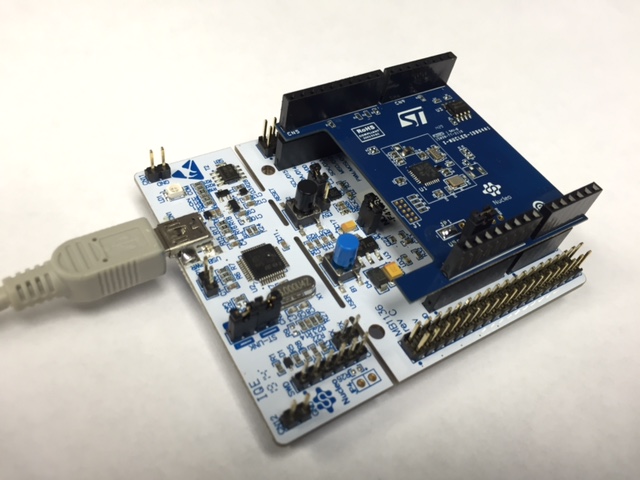
Next, connect the STM32F411 Nucleo board to your PC with a USB cable.
Now return to the Nucleo_BLE_HeartRate project homepage and import the project into your mbed compiler:

Click “Import” button on the pop up window shown below
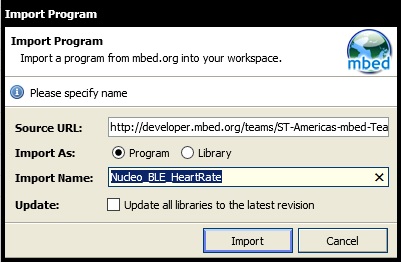
Compile and load the image onto the F411 Nucleo board
Note
Refer to Getting Started with mbed and the STM32F411 Nucleo Board to learn how to compile and load a program onto the Nucleo board
Open a terminal window to display the status of your Bluetooth stack. For this example, set the terminal BAUD rate to 9600
Note
Refer to Creating Console Output for setting a terminal emulator
You should now see the various Bluetooth stack staus displayed on your console output.
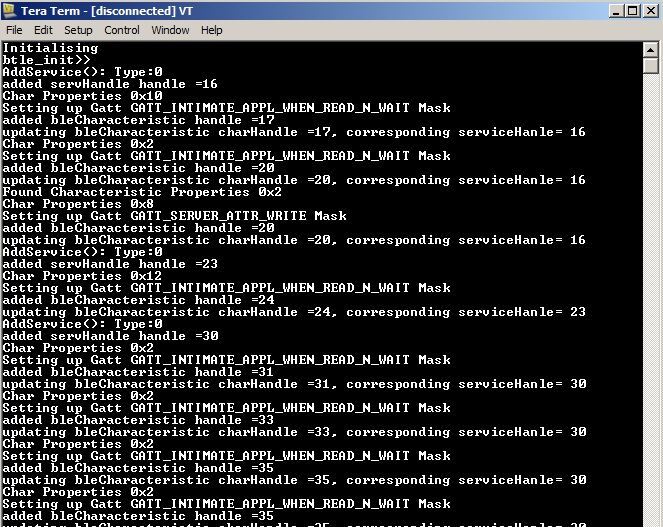
Test your application with iPhone
- Use Alpwise i-BLE
- On the Alpwise app select BlueNRG_HRM
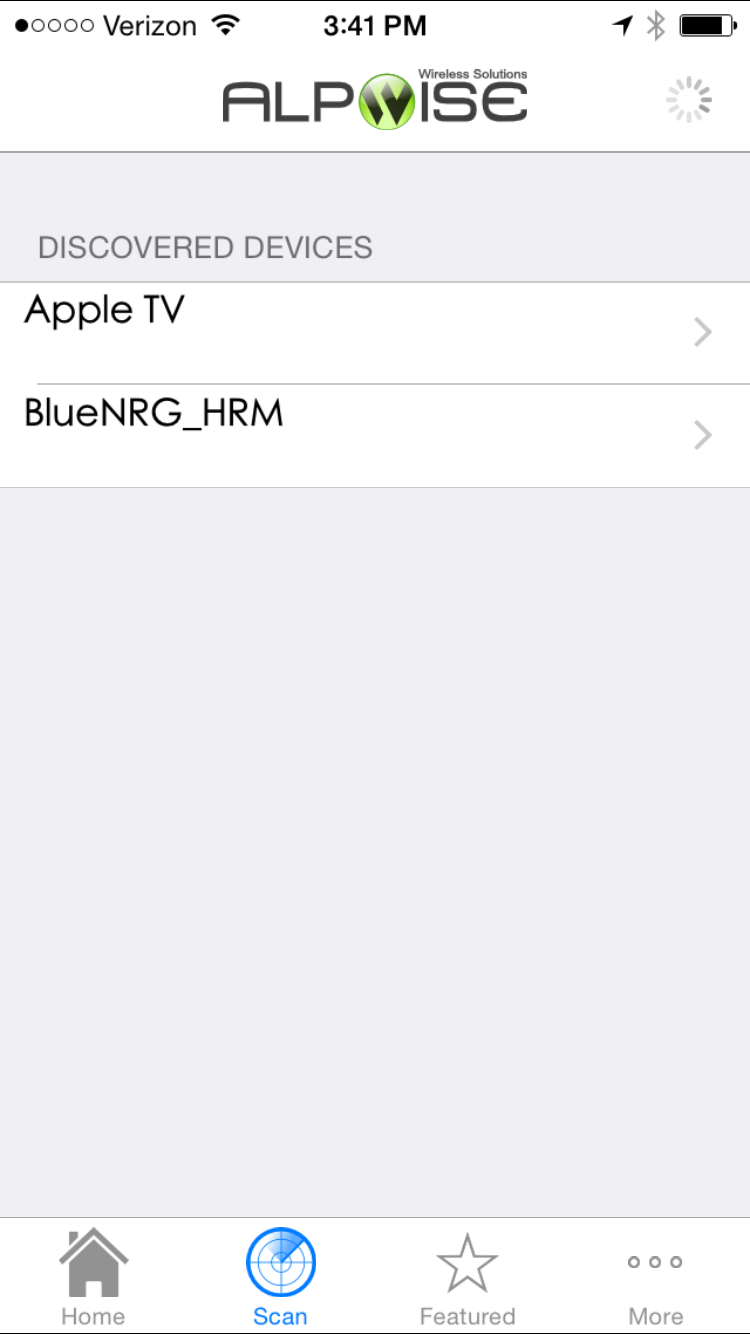
- Select Heart Rate
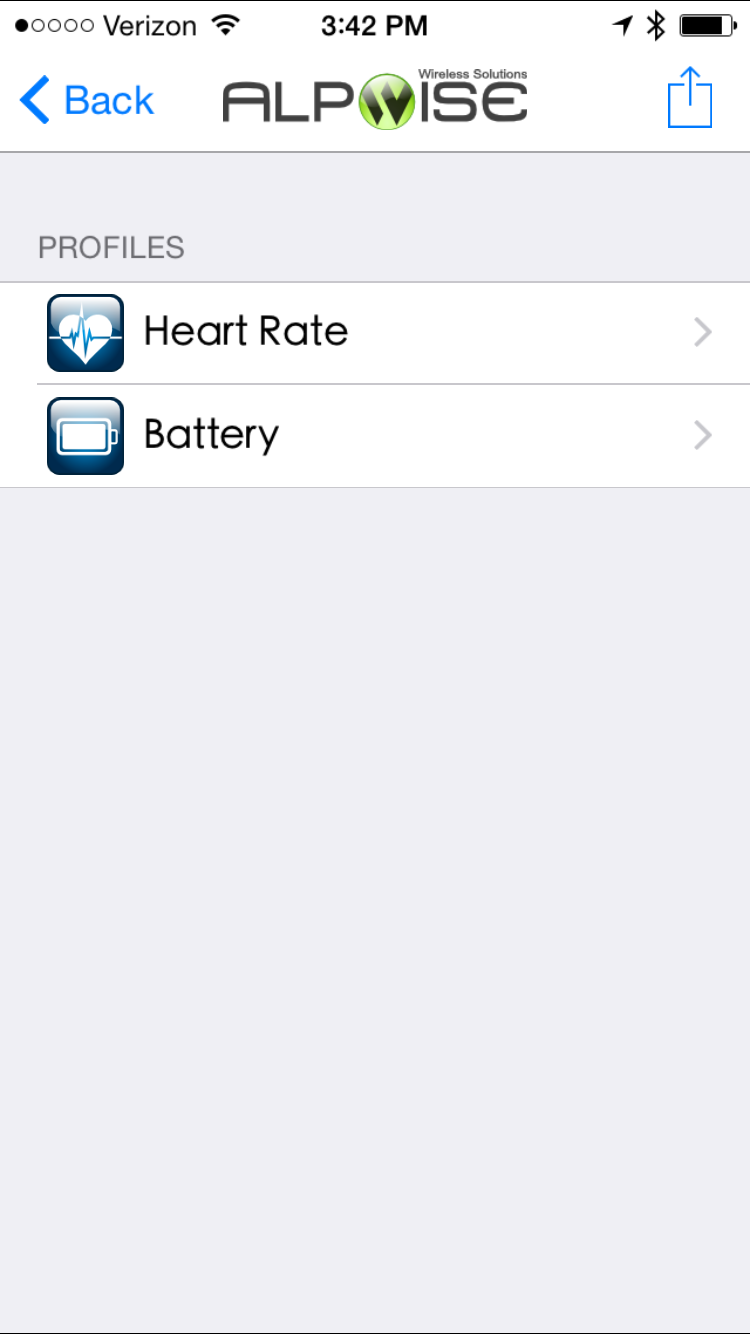
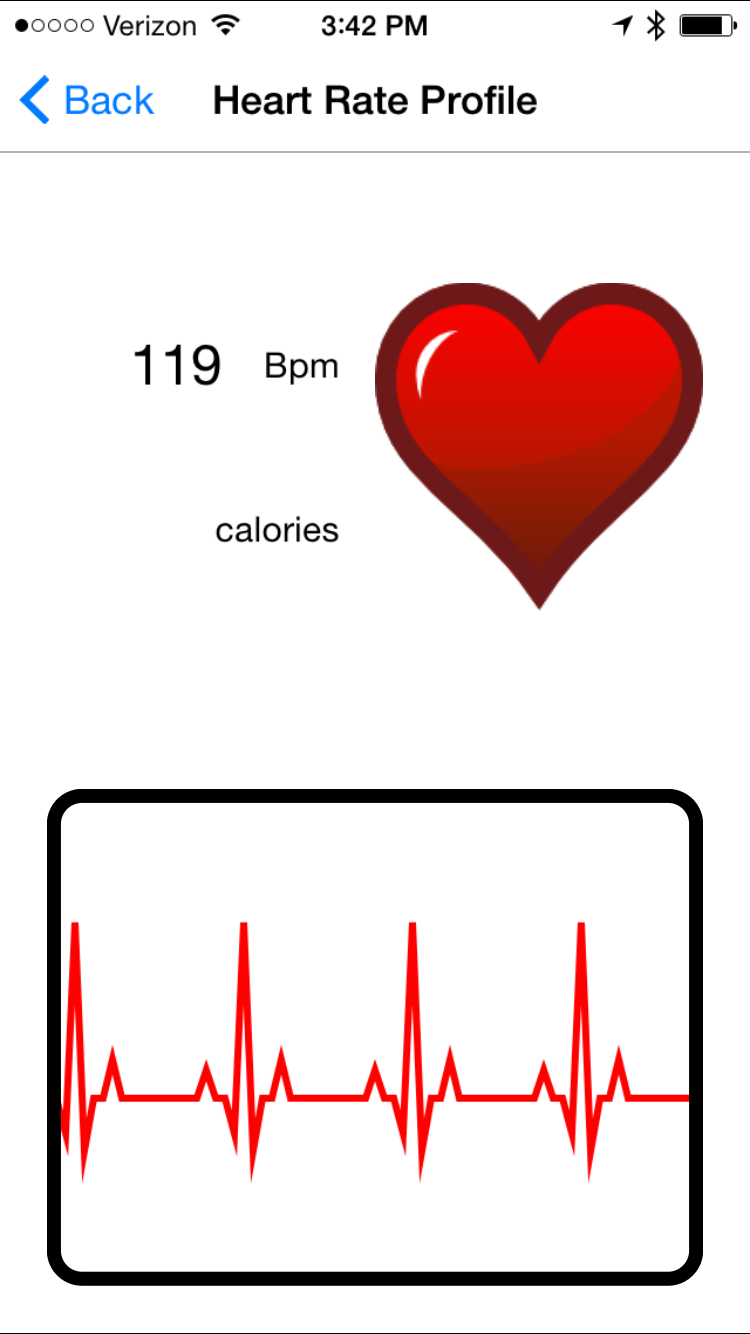
Diff: main.cpp
- Revision:
- 0:5aa20a65f094
diff -r 000000000000 -r 5aa20a65f094 main.cpp
--- /dev/null Thu Jan 01 00:00:00 1970 +0000
+++ b/main.cpp Fri Dec 19 19:39:57 2014 +0000
@@ -0,0 +1,104 @@
+/* mbed Microcontroller Library
+ * Copyright (c) 2006-2013 ARM Limited
+ *
+ * Licensed under the Apache License, Version 2.0 (the "License");
+ * you may not use this file except in compliance with the License.
+ * You may obtain a copy of the License at
+ *
+ * http://www.apache.org/licenses/LICENSE-2.0
+ *
+ * Unless required by applicable law or agreed to in writing, software
+ * distributed under the License is distributed on an "AS IS" BASIS,
+ * WITHOUT WARRANTIES OR CONDITIONS OF ANY KIND, either express or implied.
+ * See the License for the specific language governing permissions and
+ * limitations under the License.
+ */
+
+#include "mbed.h"
+#include "BLEDevice.h"
+#include "HeartRateService.h"
+#include "BatteryService.h"
+#include "DeviceInformationService.h"
+#include "Utils.h"
+
+BLEDevice ble;
+DigitalOut led1(LED1);
+
+const static char DEVICE_NAME[] = "BlueNRG_HRM";
+static const uint16_t uuid16_list[] = {GattService::UUID_HEART_RATE_SERVICE,
+ GattService::UUID_BATTERY_SERVICE,
+ GattService::UUID_DEVICE_INFORMATION_SERVICE};
+static volatile bool triggerSensorPolling = false;
+
+void disconnectionCallback(Gap::Handle_t handle, Gap::DisconnectionReason_t reason)
+{
+ DEBUG("Disconnected!\n\r");
+ DEBUG("Restarting the advertising process\n\r");
+ ble.startAdvertising(); // restart advertising
+}
+
+void connectionCallback(Gap::Handle_t handle, const Gap::ConnectionParams_t *reason)
+{
+ DEBUG("Connected\r\n");
+}
+
+void periodicCallback(void)
+{
+ led1 = !led1; /* Do blinky on LED1 while we're waiting for BLE events */
+
+ /* Note that the periodicCallback() executes in interrupt context, so it is safer to do
+ * heavy-weight sensor polling from the main thread. */
+ triggerSensorPolling = true;
+}
+
+int main(void)
+{
+ led1 = 1;
+ Ticker ticker;
+ ticker.attach(periodicCallback, 1);
+
+ DEBUG("Initialising \n\r");
+ ble.init();
+ ble.onDisconnection(disconnectionCallback);
+ ble.onConnection(connectionCallback);
+
+ /* Setup primary service. */
+ uint8_t hrmCounter = 100;
+ HeartRateService hrService(ble, hrmCounter, HeartRateService::LOCATION_FINGER);
+
+ /* Setup auxiliary services. */
+ BatteryService battery(ble);
+ DeviceInformationService deviceInfo(ble, "ST", "Nucleo", "SN1", "hw-rev1", "fw-rev1", "soft-rev1");
+
+ /* Setup advertising. */
+ ble.accumulateAdvertisingPayload(GapAdvertisingData::BREDR_NOT_SUPPORTED | GapAdvertisingData::LE_GENERAL_DISCOVERABLE);
+ ble.accumulateAdvertisingPayload(GapAdvertisingData::COMPLETE_LIST_16BIT_SERVICE_IDS, (uint8_t *)uuid16_list, sizeof(uuid16_list));
+ ble.accumulateAdvertisingPayload(GapAdvertisingData::GENERIC_HEART_RATE_SENSOR);
+ ble.accumulateAdvertisingPayload(GapAdvertisingData::COMPLETE_LOCAL_NAME, (uint8_t *)DEVICE_NAME, sizeof(DEVICE_NAME));
+ ble.setAdvertisingType(GapAdvertisingParams::ADV_CONNECTABLE_UNDIRECTED);
+ ble.setAdvertisingInterval(1600); /* 1000ms; in multiples of 0.625ms. */
+ ble.startAdvertising();
+
+ while (true)
+ {
+ if (triggerSensorPolling)
+ {
+ triggerSensorPolling = false;
+
+ /* Do blocking calls or whatever is necessary for sensor polling. */
+ /* In our case, we simply update the dummy HRM measurement. */
+ hrmCounter++;
+
+ if (hrmCounter == 175)
+ {
+ hrmCounter = 100;
+ }
+
+ hrService.updateHeartRate(hrmCounter);
+ }
+ else
+ {
+ ble.waitForEvent();
+ }
+ }
+}
 ST Americas mbed Team
ST Americas mbed Team